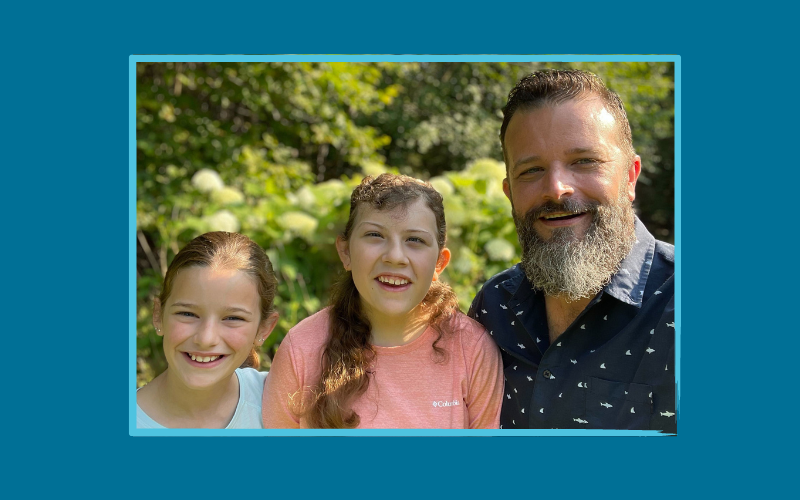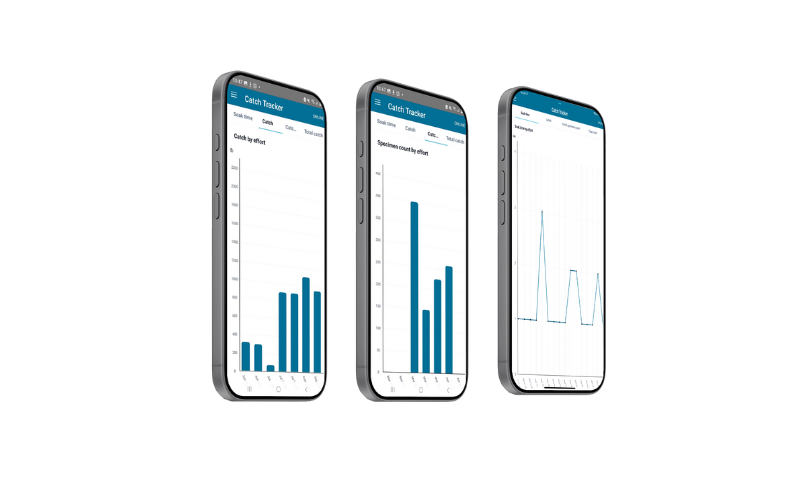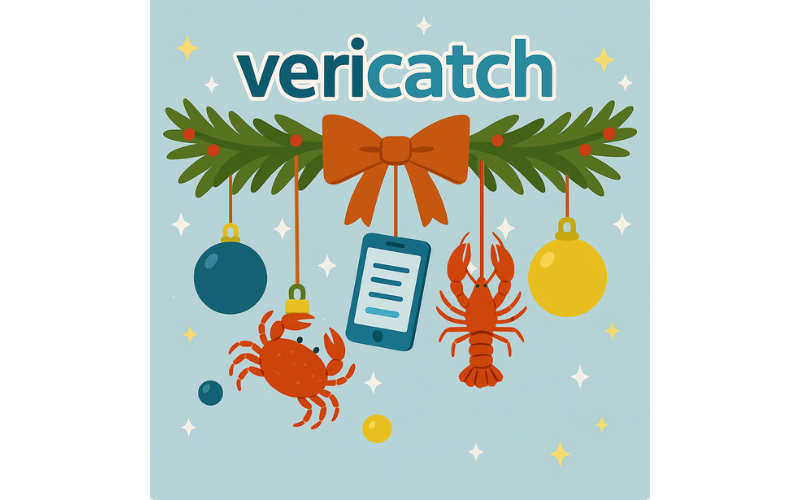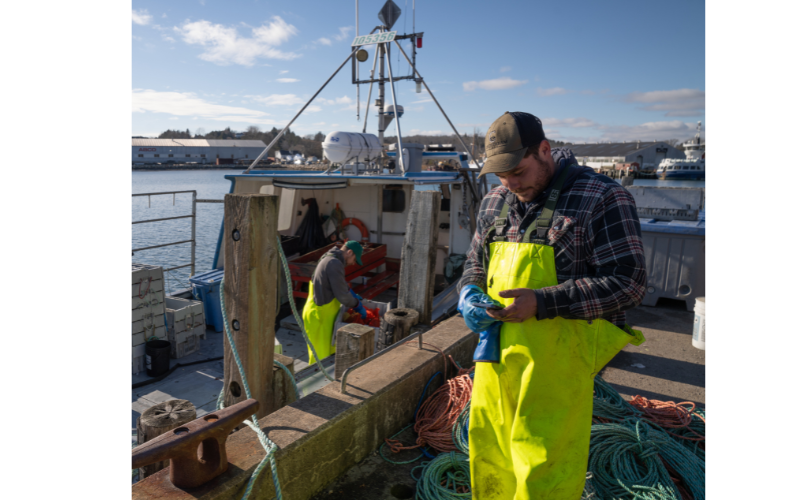Mark Hippern has been a Senior Manager Business Development in the Maritimes for Vericatch since 2021. Based in Halifax, Mark has family ties to the commercial fishing industry and is deeply experienced in partnering with clients on technology decisions to help them compete and serve their customers better. Mark is often on the front lines for Vericatch, meeting and talking with our Canadian ELOG users and industry folk from around the world who are interested in our catch reporting tools. We sat down with Mark to get his take on the industry and the DFO transition to ELOGS.
How does your background feed into your work at Vericatch?
The last twenty years of my career have been spent helping people use technology to optimize their business objectives. From the early days of the Internet to the launch of smartphones, I’ve been working to bridge the gap between technical teams and end users so companies can access user-friendly technology to support and improve their businesses.
What have you found most interesting about commercial fishing and catch reporting?
I’ve found the lack of timely data available to regulators and harvesters interesting and alarming. The government is making important decisions about fish stocks and fisheries based on outdated data, speculation, and anecdotal evidence. There’s not a lot of data out there, and what there is may be unreliable, but if that’s all there is access to, then that’s what people have to use for decision-making.
In most industries, stakeholders have accurate and necessary data at their fingertips, and informed decisions can be made in real time. However, Canada’s commercial fishing industry is still working towards that.
I’ve also really enjoyed working with fishermen, they’re the backbone of the communities I’ve grown up in and of my own family. It’s interesting to see how they manage things in the good and bad years and get their perspectives on the challenges and changes in the industry.
What kind of feedback do you get from the people using our FisheriesApp tool in Canada or internationally?
I’ve found that our users respond to our efforts to make our software eminently usable for whoever is entering the data—be that a fisherman, a scientist, or a regulator. Our ELOG subscribers are often surprised at how easy our FisheriesApp ELOGs are to use once the initial set-up has been completed. We’ve even built an intuitive wizard to help ELOG users breeze through the setup.
Our international clients are impressed by the flexibility of our FisheriesApp product. It’s designed to be flexible enough to create pretty much any form and capture whatever data they need, adding a lot of value.
I’m often told, both in Canada and internationally, that people are surprised at how affordable our solutions are.
What’s important to consider when helping business customers convert from a paper system to commercial software tools?
Adoption is the most important thing. People need to use and be comfortable using a new product. We have a strong technical team and fishermen on our board; we build what we think works based on feedback and DFO specs. Then, we take it to our users in the field, get their feedback, and adapt our software as needed. For instance, last year we had feedback about how users pick the date and time on our app. It didn’t mimic how they’re used to choosing dates on their phones, so we converted our system to align with the expected user experience, making it more intuitive for our users.
Word of mouth supports adoption, so we work hard to ensure users have a positive experience and take their feedback seriously. We also have a great support team and prioritize good onboarding and training. Users are relieved that they can finally stop filling in a wet logbook with a pen that has just died and do their compliance using a device they have on them anyway.
Why do you feel it’s important to have French Canadian team members?
We’re committed to having a fisherman from Quebec on our team. This is not just because commercial fishing in Quebec is a big industry but also because the Atlantic Provinces have many French fishing communities. Our product is designed for all Canadian fishermen and harvesters, whether they’re French speakers in the Gulf or Vietnamese crabbers on the West Coast.
How do you manage the push and pull between customer needs and our development team’s capacity?
Regarding our customers’ needs, I believe in dealing with people, human to human. If a user suggests a change or update to our ELOG app and we agree that it makes sense, then I’ll let that user know our timeline for releasing the update. They appreciate that we’re taking their concerns seriously and knowing how long it will take to implement.
Our development team understands the importance of the feedback from the fishermen we work with. They want to create the best product possible, so we’re constantly juggling our priorities to add updates based on user feedback into our product roadmap.
The harvesters respect that we communicate and respond to their changes, and our development team recognizes the need to respond to our users, so there’s not too much push and pull.
When you talk to clients and potential clients outside of Canada, what appeals to them about our Canadian ELOG experience, and what are their biggest commercial fishing challenges?
Both in Canada and internationally, having usable, accurate, and up-to-date data is essential for making decisions that protect the industry and fishing stocks. Our industry partners – fishermen, fishing associations, and NGOs – recognize the potential of having near real-time data at their fingertips. They see the potential for it to transform the industry and their processes, making their catch more traceable so that they get a better price for their catch, save themselves time, and protect the industry. Fishermen often have a succession plan for handing their businesses down to their families, and they want to protect fish stocks and prices so their businesses will be viable for generations to come. And the same holds true for people just getting into the industry.
What’s something about you that our users might be surprised to find out?
I’m a performing musician and can be seen on stage at many local Nova Scotia establishments and am the proud Dad of two beautiful, active daughters who are also very involved in fundraising campaigns for the local Maritime Children’s Hospital.
Have questions about our software for Mark? Feel free to email him anytime: mark@vericatch.com



